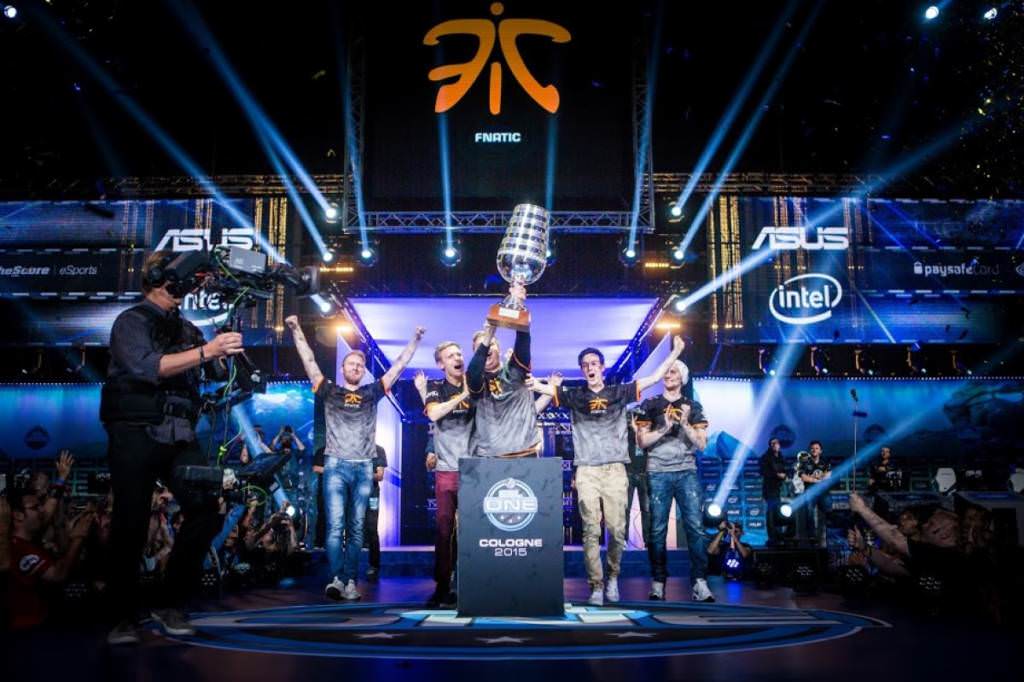Fnatic has partnered with music streaming service Deezer to promote the brand to its global esports fan base. It marks the first time the professional gaming organization has explored a music partnership, and it’s the inaugural esports marketing initiative for the music company. Deezer has more than 12 million active users in 185 countries around the world, offering access to over 43 million tracks.
A 2008 report from Cassidy and Macdonald found that over 80 percent of gamers play games while listening to music. The recent IFPI Global Music Report 2017 confirmed this trend with the music industry experiencing the fastest growth in 20 years, with music streaming accounting for more than 60 percent of it.
“Music and sports have always gone hand-in-hand, as we know that sports fans are as passionate about matches, their sporting heroes and what they are listening to, as they are about music and artists,” Ralph Pighin, vice president of Central and Eastern Europe at Deezer, told AListDaily. “Following our exclusive partnerships with global football clubs Manchester United, FCB, Flamengo in Brazil and FC St. Pauli, we wanted to expand our offering beyond football into other sports including into esports.”
Pighin said the core premise of the partnership is to give gamers and Fnatic’s fans the chance to connect further in gaming through music.
“Like the music community, esports is a shared platform, so players will be able to connect with their fans in real time and share their personal playlists and tastes to audiences across the globe,” Pighin explained. “As part of this deal, we will also be rolling out joint marketing initiatives which will further promote the relationship between gaming and music, providing further engagement opportunities for both the team and their fans.”
Our official #BlizzCon @Deezer playlist! Reply with your favourites and we'll add the 5 best ❄️
LISTEN 🎧 https://t.co/eLUufjcsem pic.twitter.com/BXMsDqvkX6
— FNATIC (@FNATIC) November 3, 2017
Roison O’Shea, head of partnerships at Fnatic, told AListDaily that this partnership with Deezer provides another great touchpoint for its fans to engage directly with the team’s pro gamers.
“Fans will be able to add their favorite Fnatic players on Deezer and keep up to date with what the guys are listening to when they’re traveling around the world to competitions, chilling out at home, or practicing at Fnatic Gaming Houses,” O’Shea said.
Each pro gamer will have a personalized playlist on Deezer, which they’ll share with fans around the world on their social media platforms. The team members will encourage fans to add them to learn more about each of the players and what kind of music they’re into.
Deezer’s listeners come from 185 countries around the world, all ranging in age and gender, according to Pighin. As a result, there’s a wide range of music and content on its platform, multiple price plans and different campaigns targeting these consumers.
“In general, music streamers are also technically savvy, and it’s a great fit for the esports audience that’s used to watching events broadcast on streaming platforms such as Twitch,” Pighin added. “Both Deezer and Fnatic are global communities that like to share. In the same way that music fans follow their favorite artists, gamers have a dedicated fan base that is genuinely interested in what their favorite players are listening to. Music is also known to help concentration in sports, which is key in esports, where there is a great deal of focus, determination and stamina required.”
Although there’s some crossover, Pighin sees the two consumer bases Deezer and Fnatic reach opening up growth opportunities on both sides. In addition, this partnership enables Deezer to better understand the mindset of gamers and what they want from a music service.
O’Shea said having Deezer on board is just one example of what Fnatic is doing to expand its reach beyond an esports audience, while delivering great opportunities to loyal fans.
“We will use this partnership to showcase both Fnatic’s and Deezer’s unique and pro-active methods to engage music fans and esports fans alike, which we know will encourage more non-endemic brands to step outside of their comfort zone and into the esports space,” O’Shea said.
This latest deal offers another example of how Fnatic is evolving as a lifestyle brand, according to O’Shea.
“We have decided to be the ones to deliver more to the esports community than what is currently available, and by doing so we are opening ourselves up to more and more people drawn by the cool things we do,” O’Shea explained. “We have developed our own range of gaming peripherals that crossover into lifestyle products. We have a range of clothing that are developed by our apparel team, which is very lifestyle focused. We host awesome parties in cities all over the world. We opened the first-ever esports concept store in London. We are creating ways to grow our community and give them products, experiences and content that otherwise they would never have.”
Fnatic works with brands like MSI, Monster Energy, Seagate and AMD.

